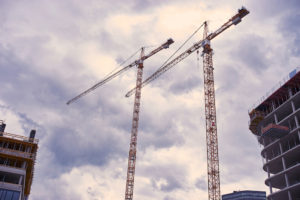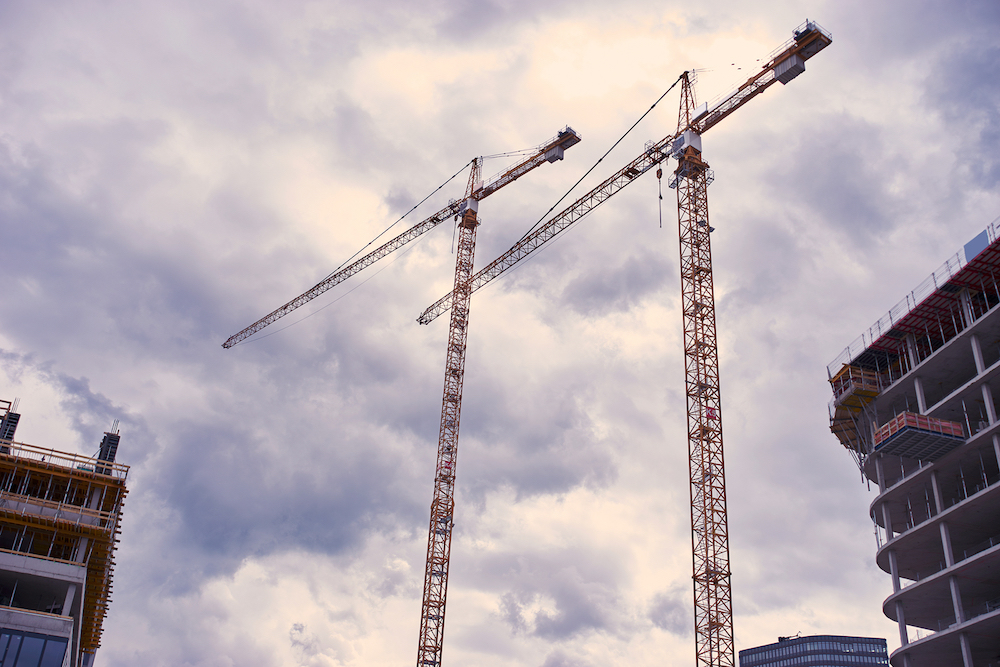
The construction industry isn’t the postal service. Rain, sleet, and snow will slow down a project’s schedule. What happens when the weather causes you to fall behind? Weather delay claims are a bit trickier than your standard delay claims, so it’s important to plan ahead. By planning for weather delays in the contract, construction businesses can avoid disputes.
“You can plan a pretty picnic, but you can’t predict the weather.” – Andre 3000
General Construction Delays: What’s the excuse?
Construction project delays are common, and bad weather is frequently to blame. (Though it’s not the biggest culprit — contractors say change orders cause more jobsite delays than the weather.)
Regardless of the cause, delay claims must be properly classified to determine whether the contractor is eligible for more time, money or both. The first question is whether the delay has affected the critical path or not. If it is a critical delay, we move on to excusability. Excusable delays are those that are out of the contractor’s control, while inexcusable delays are due to someone’s fault or negligence.
Lastly, is the issue of compensability. If the delay is considered excusable, then the contractor will be granted a time extension – but no extra money. Therein lies one of the most significant issues with weather delays.
Let’s Talk Delays
Construction Delay Claims: Types, Claims, & Defenses
Weather Delays in Construction
Typically, delay claims are the responsibility of the party who was in the best position to control the event that caused the delay. Since no one can control the weather (yet), weather delays are handled a bit differently. These are most often dealt with through force majeure clauses, which recognize that delays caused by unusually severe weather should be considered excusable.
Categorizing weather delays as excusable allows the contractor additional time to complete performance. Unfortunately, it also prohibits the ability to recoup the additional costs incurred by the contractor due to the delay.
Entitled to Time, Not Money
Well-drafted construction contracts should include a section on how to deal with weather delays, and what amounts to excusable and severe conditions. For example, let’s take a look at two standard contract forms to see how they address this issue:
AIA General Conditions:
“If weather conditions are the basis for the claim for additional time, such claims shall be documented by data substantiating that weather conditions were abnormal for the period of time, could not be reasonably anticipated, and had an adverse effect on the scheduled construction.”
ConsensusDocs:
“if the Contractor is delayed at any time in the commencement or progress of the Work by any cause beyond the control of the Contractor, the Contractor shall be entitled to an equitable extension… including, but not limited to, adverse weather conditions not reasonably anticipated.”
Notice that neither one of these clauses mentions monetary compensation. Unfortunately, when it comes to Mother Nature, everyone on the project is suffering. Not just you! All project participants are eating some costs due to delay. Still, additional time may be available, which is essential considering you still may be held liable for late completion.
Is the Delay Abnormal & Unanticipated?
Most construction contracts allow for time extensions if the delay is out of their control and could not have been reasonably anticipated. Obviously, the first requirement is met – weather conditions are out of everyone’s control. Reasonable anticipation is the real meat of a weather delay claim.
Reasonable Anticipation
The first thing that should be established is what “normal” is. The determination of what is normal relies on historical weather reports from either the National Oceanic & Atmosphere Administration (NOAA) or the National Weather Service (NWS). Typically, the past 5-10 year average, limited to a specific geographical area, is sufficient to establish the “norm.”
But what makes weather conditions unable to be anticipated? Look, we all know it snows in Buffalo, and it rains in New Orleans. There needs to be some substantial deviation from the norm not to be reasonably anticipated. Starting work in South Florida at the beginning of hurricane season? If a tropical storm lands, that will be considered reasonably anticipate-able. Most contractor bids are presumed to factor in some weather delays in their budget, to some degree.
Documentation is Important
As stated above, there is a lot of statistical data involved in establishing the “norm” for the time and place where your job site is situated. But that’s only half the battle. What are you comparing these conditions against? Exactly what setbacks have been incurred?
This is where the importance of a thorough daily report system comes into play. Document the weather conditions, explain what work is being affected, and photograph the site conditions the following day. The more detailed the reports, the better the odds the contractor has of being granted extra time.
Alternatives
Time extensions for performance inevitably come with increased costs of performance. So if weather delays are excusable, how does one recover monetary damages? There are some methods to recover those additional costs, but only if there are other factors involved. Technically speaking, for the dealy to be inexcusable (and therefore compensable), it must be caused by someone. There are at least two scenarios where the customer can cause damages concerning “weather delays.”
First, if the delays caused accelerated performance to stay on schedule, a claimant should consider making an acceleration claim. With or without a direct request to speed up performance, this is an option if you are expected to complete the work within the reduced time of performance. Another possibility of recovery is under the differing site conditions clause. If the inclement weather alters the physical characteristics of the job site, a contractor may be entitled to an increased contract price.
Related Resources
- Types of Construction Project Delays – Inexcusable Delays vs. Excusable Delays
- Watch Out for ‘No Damages for Delay’ Clauses | Construction Contracts
- Common Causes for Construction Delays and How to Minimize the Fallout

